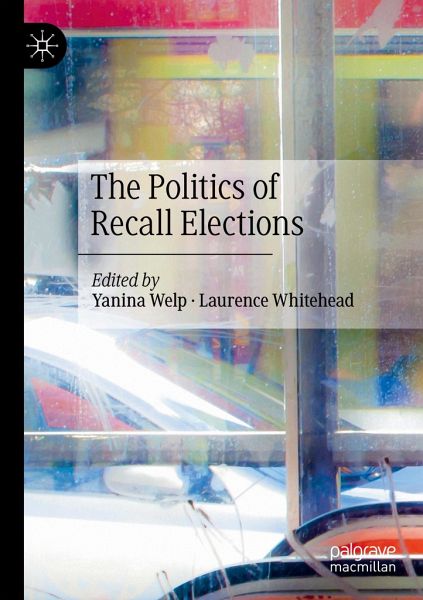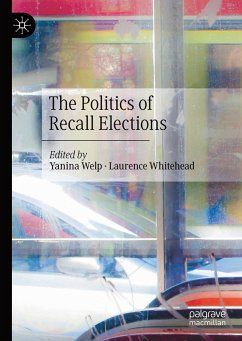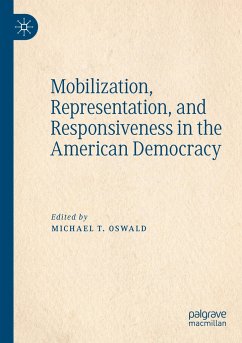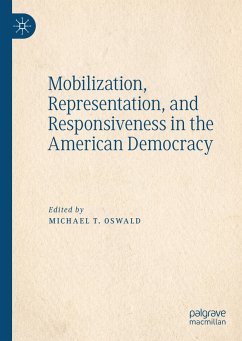
The Politics of Recall Elections
Versandkostenfrei!
Versandfertig in 6-10 Tagen
160,49 €
inkl. MwSt.

PAYBACK Punkte
0 °P sammeln!
This edited volume presents the first comprehensive analysis of recall processes which have spread globally since the end of the Cold War, and which are now re-configuring the political dynamics of electoral democracy. Drawing on the expertise of country experts, the book provides a coherent and theoretically informed framework for mapping and evaluating this fast-evolving phenomenon. While the existing literature on the subject has so far focused on isolated single-country studies, the collection brings recall experiments to centre stage as it relates them to current crises in the traditional...
This edited volume presents the first comprehensive analysis of recall processes which have spread globally since the end of the Cold War, and which are now re-configuring the political dynamics of electoral democracy. Drawing on the expertise of country experts, the book provides a coherent and theoretically informed framework for mapping and evaluating this fast-evolving phenomenon. While the existing literature on the subject has so far focused on isolated single-country studies, the collection brings recall experiments to centre stage as it relates them to current crises in the traditional variants of representative democracy. It explains why the spread of recall innovations is set to continue, and to pass a threshold from inattention to urgent engagement. The authors further provide original insights into the rationale for recall, as well as guidance on minimising the accompanying risks.












